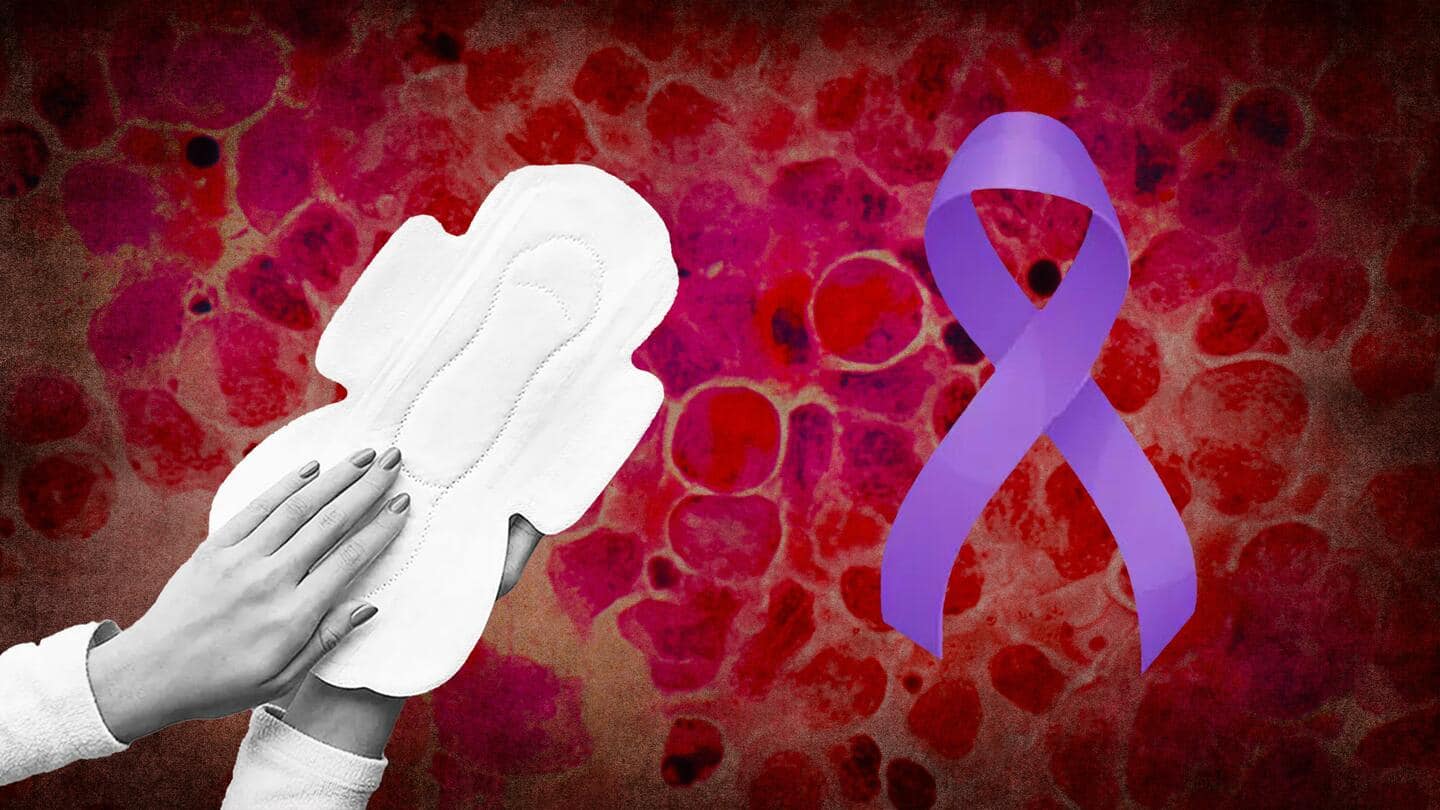
Popular sanitary pads have harmful chemicals, could cause cancer: Study
What's the story
A study done by a Delhi-based environmental NGO, Toxics Link, revealed that popular sanitary napkins sold across India contain high amounts of harmful chemicals like phthalates and volatile organic compounds (VOCs).
The report titled 'Menstrual Waste 2022', found the presence of these harmful chemicals in a total of ten samples, six inorganic and four organic sanitary pads available in the market.
Concerns
Exposure to these chemicals could cause cancer
Exposure to these harmful chemicals could lead to endocrine disruption, improper functioning of the heart and reproductive system, and cause diabetes, congenital disabilities, cancer, and fertility impairment, points out the study titled "Wrapped in Secrecy."
Sanitary napkins remain in close proximity to the vaginal area, and the vagina, being a mucous membrane, secretes and absorbs fluids at a higher rate than the skin.
Irony
Self-proclaimed organic pads had higher amounts of phthalates
According to the study, all types of sanitary napkins, organic and inorganic, tested positive for the presence of phthalates.
Ironically, the highest amounts of phthalates were found in self-proclaimed 'organic' sanitary napkins, the study informed.
Among phthalates, the maximum concentration was of DIDP, a type of phthalate, at 19,460 microgram/kg (µg/kg) in a self-claimed organic pad.
Organic is not safer
High levels of VOCs found in organic pads
Sanitary napkin samples were checked for the presence of a total of 25 VOCs out of which compounds such as acetone, chloroform, benzene, toluene, and others were detected in all the samples.
The study also pointed out that it was shocking to find high levels of VOCs in all the organic samples, which shatters the preconceived notion that organic pads are safer.
Fragrance
Sanitary napkin brands have been adding fragrance
The study noted how fragrance is being infused into sanitary pads to add a feeling of freshness.
This adds to the growing concern that some of these chemicals may affect the users' health in the long term.
"This may involve usage of chemicals like synthetic musk which are potential hormone disruptors, cancer-causing chemicals like styrene, pyridine, methyl eugenol, and butylated hydroxyanisole," it stated.
Solution
Recommendations made by the study
The study recommended a thorough investigation into the presence of these chemicals in pads.
It stated that the government should frame standards for chemicals in sanitary products, and it should be mandatory for producers to disclose product ingredients.
It also suggests brands advertise responsibly.
Finally, the study recommends regulations and schemes to promote substitution or reduction in the use of chemicals in the products.